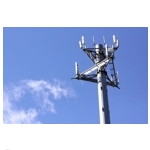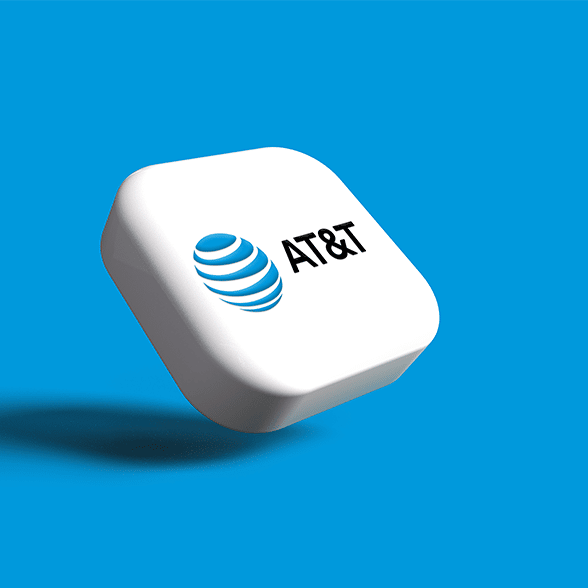 A huge amount of spectrum is set to change hands as the result of several transactions announced today involving Verizon Wireless, AT&T and a relatively unfamiliar name in the wireless industry – Grain Management, a Sarasota, Fla.-based private equity firm.
A huge amount of spectrum is set to change hands as the result of several transactions announced today involving Verizon Wireless, AT&T and a relatively unfamiliar name in the wireless industry – Grain Management, a Sarasota, Fla.-based private equity firm.
The transactions, which are subject to regulatory approval, would swell AT&T’s existing holdings in the lower 700 MHz B-block by adding a population of 42 million in 18 states and would augment the AWS spectrum Verizon bought last year from several of the nation’s largest cable companies by adding spectrum in several large markets in the west.
As a result – in the short term at least — the nation’s two wireless carriers will be better positioned to operate separate LTE networks whose devices cannot roam on one another’s networks. That’s a goal which, for competitive reasons, both companies seem to share.
Verizon already has deployed LTE in the upper C-block where it holds virtually all the spectrum and will now be well positioned to build out LTE in the AWS band. AT&T, which has been deploying LTE in the 700 MHz lower B and C bands, will expand its lower B-block holdings. Through the transactions, each carrier will unload spectrum in a band that the other will now dominate.
What about the A-block?
Verizon agreed to sell its B-block spectrum holdings upon approval of its acquisition of AWS spectrum from the cable companies. As part of that commitment, the carrier also agreed to sell 700 A-block licenses in some of the nation’s largest markets, including markets as large as New York City and Los Angeles. But to date it has sold only a handful of A-block licenses – all outside of the large markets.
So what happens to the rest of Verizon’s A-block spectrum?
When Telecompetitor asked the company that question, a spokeswoman sent this reply: “We’ve said from the outset that we would offer the lower 700 MHz A and B Block spectrum for sale at fair market value, recognizing that all the spectrum licenses may not be purchased as part of this process. We will deploy any licenses we don’t sell for mobile broadband capacity.”
That could be good news for small wireless carriers that also hold A-block spectrum but have not been able to obtain devices to work in that band at reasonable prices because of their small volumes. If Verizon indeed builds out that band it will need handsets – a lot of handsets.
Verizon likely would want devices that fall back onto its CDMA-based 3G network – and that also could be good news for small carriers, most of whom also use CDMA, rather than GSM, for 3G.
Building out the A-block won’t be Verizon’s top priority however. The spokeswoman told Telecompetitor that “Our focus is on continuing to deploy our LTE network on our 700 MHz Upper C spectrum and on deploying our AWS spectrum for LTE capacity. We would look to the A block to provide capacity as needed using devices configured to work on that band.”
With the A-block remaining largely in Verizon’s hands, it will be interesting to see what, if any action the FCC takes on a proposal made nearly a year ago that could require devices operating in the lower B- and C-block, where AT&T holds most of the spectrum, to also work in the A-block.
If the FCC does not take action on that, small carriers eventually could end up with a device that only roams with Verizon. If the FCC does require device interoperability across the lower 700 MHz band, potentially small carriers with A- or B-block spectrum could gain the ability to roam with either of the nation’s two largest carriers.
But now that Verizon is keeping its A-block spectrum, lower 700 MHz interoperability also could enable AT&T and Verizon to roam on one another’s networks — a situation which, until now, they have (apparently deliberately) avoided. So I wouldn’t expect to see either of them very enthused about the interoperability concept.
Transaction details
The transactions announced today call for AT&T to acquire nearly all the B-block spectrum that Verizon put up for sale. A handful of Verizon’s B-block licenses were previously sold to small wireless carriers, primarily in rural markets, and according to today’s announcements, Grain Management also will buy a few of them – all in North Carolina markets.
AT&T will pay $1.9 billion for Verizon’s spectrum and give Verizon AWS licenses in several western markets. In addition, AT&T said it will lease 700 MHz spectrum from Grain Management in three markets and will sell an AWS license covering Dallas to Grain Management, which will lease that spectrum to Verizon.
Additional details of the transactions can be found in AT&T’s announcement and Verizon’s blog post.


